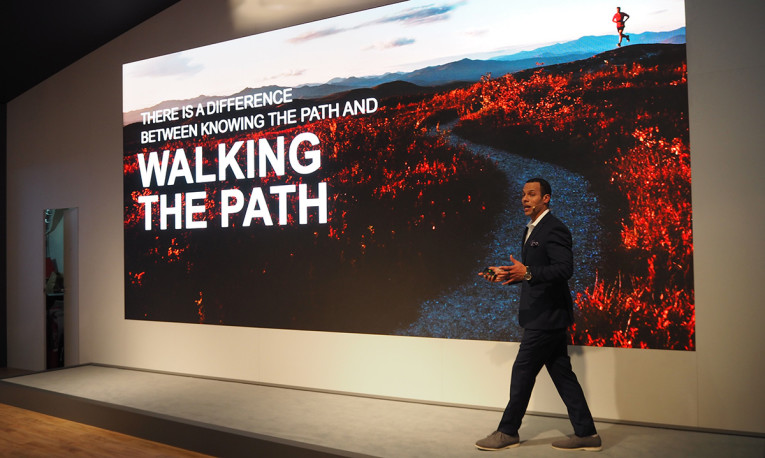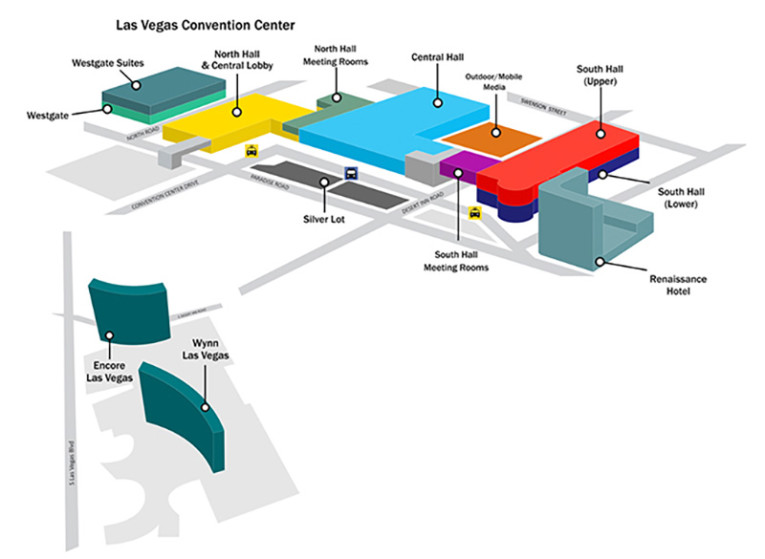More curious is the relationship between professional associations - particularly non-profit entities and trade shows. Those are almost always the publishers' best partners. And the reason why I never wanted to "diversify" from publishing into event or trade show production was precisely because I always respected the work of those associations. We all should try to do one thing well, and stick to it.

And it's funny that the largest trade show organizers in the world always were the first to respect media, and the first to partner with publishers for the promotion of those events - especially at the most critical stages, like early years, or a rebound after some type of disruption. Yes, publishers know their industry sectors, market segments, and audience better than anyone else. And that's why their support is so important.
The Integrated Systems Europe (ISE) show was a great example of that successful relationship. From early on, they partnered with all the industry publications and publishers, and at a later stage they did their best to integrate those publications into their activities - always in a creative and open way - magazine publishers could promote whatever activities they wanted and could carry, inside the show.
I am mentioning this apparent interdependency or dichotomy because, with the COVID-19 pandemic situation, we are now at a stage where in-person events are not possible at all, for all the well-known reasons. And obviously, professional industry associations, trade show operators globally, and even small show promoters are all looking for a solution to their business models.

Much as I never saw any reason for publishers to "cross the line" and promote events or trade shows, now is the time when event organizers need publishers more than ever. They need their established channels and organically nurtured audiences. Show promoters have an audience during the show. After the show is over, they have nearly nothing. But they still have a business, as long as they understand their role and unique value proposition.
Value Proposition
A trade show is an event where companies and entrepreneurs can launch, demonstrate, and promote their latest products and services. Shows, fairs, exhibitions, or expositions are promoted to connect sellers with buyers - and that's why most trade shows have access reserved to professionals and industry members.
Trade shows provide exhibit spaces where potential buyers can easily locate relevant vendors, plus additional facilities for workshops, presentations, and private meetings, as well as press conference facilities, and promote direct access to trade press and media, plus additional networking events.

Exhibitors participate in the hopes of connecting with potential new customers, reinforcing relationships with dealers and distributors, and networking with influencers and the media. Remember, even Apple and Steve Jobs attended trade shows in the company's early years, or whenever they expanded to new markets.
People attend shows to better understand an industry - to get a clear vision of the industry and the players - and be the first to learn about new products and technologies.
So, trade show and event promoters just need to find a way to expand this unique value proposition - generating a balanced RoI - from an alternative, online model, knowing they are temporarily unable to produce a trade show, attract people from all over the world, and sell thousands of square meters of show floor. They can do exactly what a trade show or event is intended to do: promote networking and business opportunities. It was never about square meters.
And no, this is not about promoting more webinars, Zoom meetings, YouTube channels, glorified websites, or the like. Companies in every industry can do that by themselves. Yes, promoting education opportunities and online training repositories makes sense for associations such as the Audio Engineering Society (AES), CEDIA, AVIXA, and others. That is part of their missions - and that is why they are sustained by the industry itself. But they could do it because there was a show going on to pay the bills of renting and opening a congress/event center. So, what is the alternative to a trade show and where is the money?
No. It's not "virtual trade shows" - using "Second Life" 3D experiences with visitors virtually "walking" to see virtual displays wearing VR goggles. Honestly, that's even worse than promoting more webinars...

When a show is ready to go, everyone flocks to visit the official show website map, download the show app, and navigate the exhibitors lists, locate potential vendors in areas of interest (by product category or application) organize a schedule, and increasingly, request a meeting or confirm a visit at a certain day/time.
In those same platforms, exhibitors can display their promotional messages for the event, and promote media events if they really want to stand out. This is still a valid proposition. Granted, doing it online doesn't generate as much revenue as selling actual booth space - but it also doesn't generate the expense of renting the convention center, hiring hundreds or thousands of people, and paying for all sorts of required logistical services. But there's still business to be made, while keeping the same show brand and the community alive.
Unfortunately, this might not be viable for smaller events, such as audio shows. In that model, there really isn't an alternative to real in-person events, where people can network, touch, and hear the products, establish relationships, and actually do business. But this is the model that is also easier to rethink, once people again feel confident to move around. It just needs to happen away from small hotel rooms and busy elevators. That was already an awful format anyway...
Event organizers are still so stunned from the COVID-19 crisis that they remain mostly paralyzed - and one of the reasons is that their own staff have been busy on Zoom meetings all the time - or worse, trying to learn what exactly Microsoft Team does.
I find it fantastic that out of all the major trade shows that were cancelled this year, nothing - or very little - was announced. Didn't the exhibitors have plans for product introductions at those shows, major technology announcements? Wasn't that the reason why they booked a booth in the first place? So, what happened to the press conferences? Where are the product press releases?
That is what the trade show organizers need to worry about and that's where they need to focus on. That's where the business is. Getting back in contact with those exhibiting companies and reminding them of the reason why they signed in the first place will be the first step to a solution.
This article was originally published in The Audio Voice newsletter, May 21, 2020.







